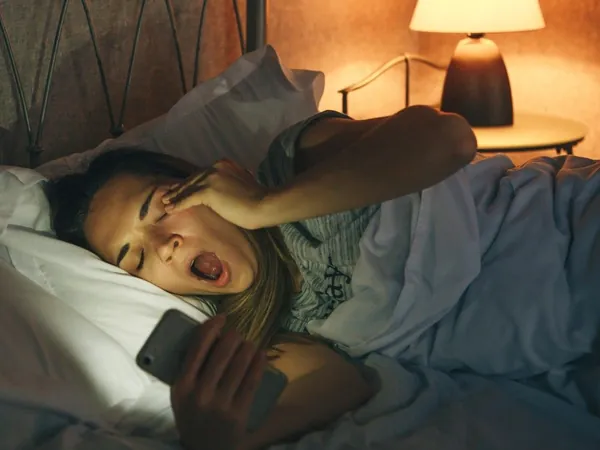
Dangerous Nights: How Light Exposure After Dark Could Be Sabotaging Your Health
2024-11-07
Author: Jacob
Groundbreaking Findings from Australia
In a groundbreaking study from Australia published in the Proceedings of the National Academy of Sciences, researchers have revealed alarming findings on the link between nighttime light exposure and increased health risks, including an elevated risk of death. The study analyzed more than 13 million hours of data from nearly 90,000 participants aged 40 and older, monitored over an extensive eight-year period using wrist sensors.
Risk Increase Due to Light Exposure
The results were striking: individuals exposed to higher levels of light at night faced a 21% to 34% greater risk of death. In stark contrast, those who basked in natural daylight experienced a 17% to 34% lower risk of mortality. This research shines a spotlight on how our modern lifestyles, filled with artificial lighting, disrupt our natural circadian rhythms—the internal 'body clock' that regulates various physiological processes linked to day and night cycles.
The Effects of Artificial Lighting on Circadian Rhythms
Sleep expert Sean Cain from Flinders University highlighted that "exposure to brighter nights and darker days can disrupt our circadian rhythms." These rhythms govern not just sleep but fundamental bodily functions, including metabolism, hormonal secretions, and immune response.
Vulnerability and Health Consequences
Dr. Daniel Windred, the lead author of the study, emphasized the importance of limiting light exposure during the hours surrounding sleep. He pointed out that those particularly vulnerable to circadian disruption should pay extra attention to their lighting environments. The potential health consequences stemming from nighttime light exposure include diabetes, obesity, cardiovascular ailments, and various mental health disorders.
Concerns from Experts
Adding further insight, Professor Michael Antle from the University of Calgary—who didn’t participate in the study—expressed concerns about people living in areas with later sunset times, noting they were more prone to obesity and cancer. He highlighted the detrimental effects of Daylight Saving Time, which can thwart our natural sleep patterns by keeping the sun out longer, thus delaying the body's readiness for sleep.
The Impact of Blue-Green Light
According to Rebecca Robillard, an associate professor at the University of Ottawa, it's crucial to limit exposure to blue-green light in the evening, which is emitted by many modern electronic devices. She explained that bright light in the evening can suppress sleep hormones, complicating our ability to fall and stay asleep—leading to various health complications such as increased heart rate, altered insulin regulation, and a weakened immune system.
The Importance of Quality Sleep
Alarmingly, disrupted sleep prevents the brain from clearing out harmful toxins, including beta-amyloid plaques associated with Alzheimer's disease. This shows just how vital quality sleep is for long-term mental health.
Benefits of Natural Daylight
On a more positive note, the study also indicated several benefits of exposing oneself to natural daylight. Sunlight exposure fosters the production of serotonin, which aids in the synthesis of melatonin, a vital hormone for quality sleep. Antle noted that higher melatonin levels are also associated with acting as an antioxidant and suppressing tumor growth.
Conclusion: Embracing Daylight for Better Health
One poignant takeaway from this research is simple: embracing daylight while minimizing exposure to artificial light at night can serve as effective strategies for enhancing overall health and longevity. Prioritizing these practices may just lead to a healthier, longer life—free from the lurking dangers of too-bright nights. So, are you ready to make a change for better health? Your future self will thank you!









 Brasil (PT)
Brasil (PT)
 Canada (EN)
Canada (EN)
 Chile (ES)
Chile (ES)
 España (ES)
España (ES)
 France (FR)
France (FR)
 Hong Kong (EN)
Hong Kong (EN)
 Italia (IT)
Italia (IT)
 日本 (JA)
日本 (JA)
 Magyarország (HU)
Magyarország (HU)
 Norge (NO)
Norge (NO)
 Polska (PL)
Polska (PL)
 Schweiz (DE)
Schweiz (DE)
 Singapore (EN)
Singapore (EN)
 Sverige (SV)
Sverige (SV)
 Suomi (FI)
Suomi (FI)
 Türkiye (TR)
Türkiye (TR)